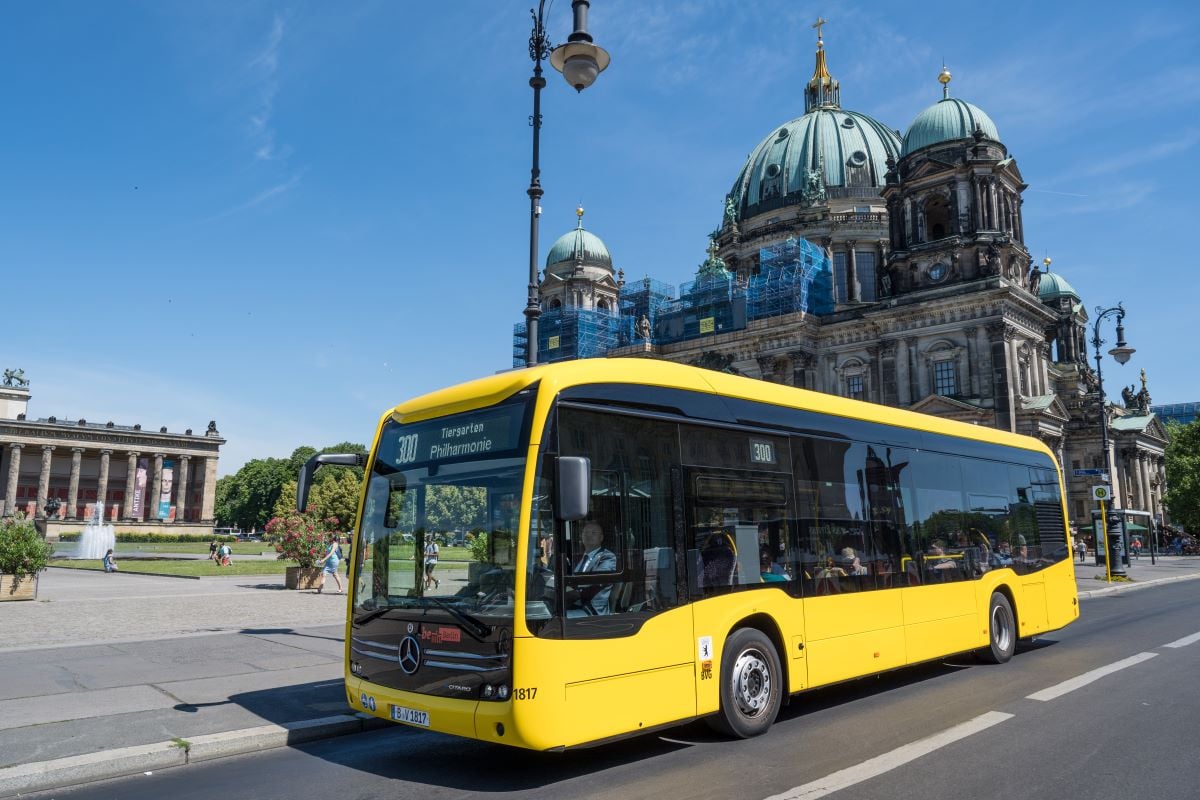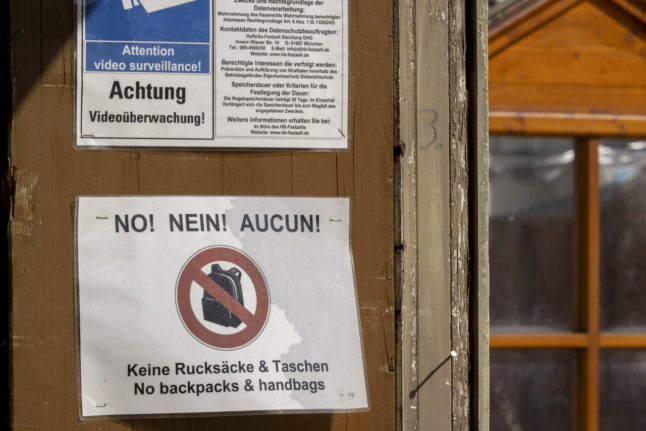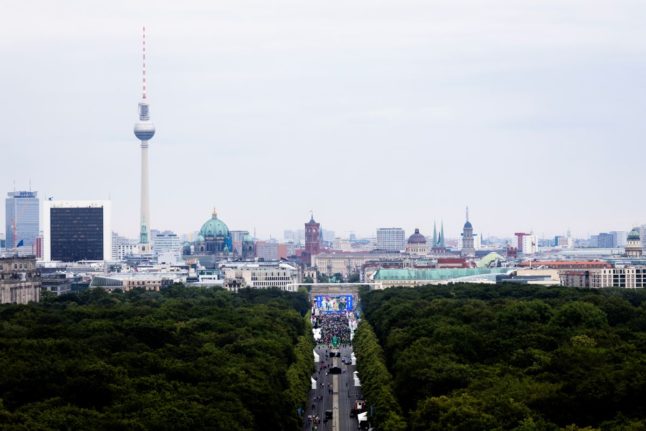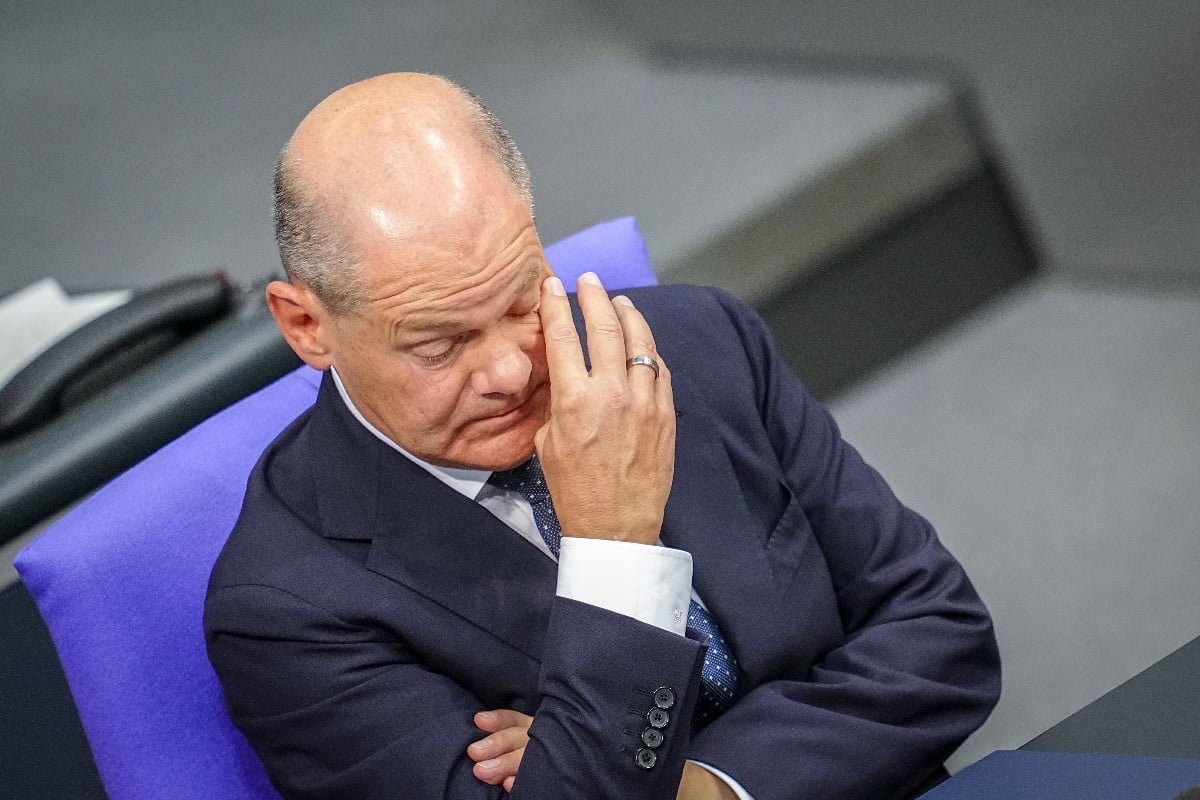Munich steps up safety plan ahead of Oktoberfest
The 189th Oktoberfest is set to start in Munich in just two days, and the city is considering how to increase safety.
Due to recent events, such as the fatal knife attack in Solingen and the thwarted suspected terrorist attack on the Israeli Consulate General in Munich, a “high abstract risk situation” must be assumed, said Christian Huber, head of the Operations Department at the police.
However, Huber stressed that intelligence was not pointing to any planned attacks in connection with the festival.
He said police were well prepared for the event, which attracts millions of people every year.
“The Oktoberfest is the safest folk festival there is,” said Huber, adding that police aimed to get as close to “a hundred percent” security as possible.
As The Local previously reported, more checks will take place at the festival grounds. Cannabis will also be banned on the premises of the festival.
READ ALSO: Oktoberfest visitors to face tighter security checks after Solingen attack
Bus availability in Berlin gets worse
Berlin’s reputation for plentiful and punctual public transport is coming under strain – after news that bus offerings are at their lowest levels since 2016.
That means that available bus trips in the capital are fewer, later, and further in between.
A report by the Berlin Local Transport Centre obtained by the rbb broadcaster finds that BVG buses will travel around 90 million kilometres this year – far behind the 98 million the city has ordered in its contracts.
The service’s availability has been declining since 2021, with similar trends noticed on the capital’s subway system in recent years.
READ ALSO: Berlin’s BVG nets over a million subscribers ‘thanks to €29 transport ticket’

Number of centenarians in Germany is increasing
At least 16,800 Germans were over 100-years-old in 2022, according to the results of a census.
That number increased by more than a quarter between 2011 and 2022, the Federal Statistical Office revealed this week.
In May 2022, there were at least 16,800 people aged 100 or more, compared to 13,400 in the previous census in 2011. More than half still lived in private households – 10 percentage points more than in 2011. In contrast, around 7,000 people, just over 40 percent, were housed in shared accommodation, such as old people’s homes and nursing homes.
The statistics also reflect that women have a higher life expectancy than men. Although the proportion of women among centenarians decreased slightly, at 85 percent it was still significantly higher than that of men.
The Federal Statistical Office cites improved living conditions, increasing prosperity and medical progress as reasons for the rising number of very old people in Germany.
Nine out of 10 centenarians lived in cities with 5,000 or more inhabitants, and a third lived in large cities with a population of 100,000 or more.
Measured against the total population, most centenarians live in Hamburg, Schleswig-Holstein and Saxony. The city with the most very old people – namely 46 per 100,000 inhabitants – is Würzburg in Bavaria.
Germany urges Georgia to reverse bill limiting LGBTQ rights
Germany on Wednesday urged Georgia to withdraw a “family values” bill that critics say curbs LGBTQ rights and warned the legislation could harm the country’s chances of joining the EU.
“We call on Georgia to comply with the relevant standards regarding civil liberties in the European Union and to refrain from this decision,” foreign ministry spokeswoman Kathrin Deschauer said at a press conference.
The foreign ministry also posted a message on social media platform X saying the law “is designed to discriminate against LGBTQI people” and “moves Georgia further away from the EU”.
“We call on Georgia to reverse its course,” the ministry said.

German tourist dies in shark attack
A German tourist died after being bitten by a shark on Monday while sailing in waters around 500 kilometres south of the Canary Islands.
The 30-year-old woman lost a leg in the attack and died of a heart attack later while being transported in a Spanish rescue helicopter, a coastguard spokesman told AFP earlier this week.
She was sailing in a British catamaran in the Atlantic some 278 nautical miles (more than 500 kilometres) southwest of the island of Gran Canaria when the shark struck.
Emergency services received an alert in the afternoon calling for a medical evacuation and sent a military plane and helicopter after also contacting the Moroccan coastguard.
The woman was taken on board the helicopter in the evening around 6 pm and was bound for hospital in the Gran Canaria town of Las Palmas when she died, the spokesman said.
Media are reporting that the incident happened “off the Canary Islands”, however our sister site The Local Spain pointed out that it was much closer to the coastal cities of Dakhla and Bir Gandouz, part of the disputed territory of Western Sahara that is currently occupied/governed by Morocco.
READ ALSO: Fact check – No sharks have ever killed people in Spain’s Canary Islands






 Please whitelist us to continue reading.
Please whitelist us to continue reading.
Member comments